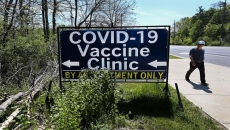The Canada Revenue Agency says thousands of self-employed workers who received emergency benefits last year won't have to repay any of it, as long as they meet certain conditions.
For anyone whose net self-employment income was under $5,000, those conditions include having filed their 2019 and 2020 tax returns and having $5,000 or more in gross self-employment income in the 12 months before their application for benefits.
They also must meet all other criteria the government laid out for the Canada Emergency Response Benefit when it paid out $500 weekly last year for workers whose incomes crashed during the first half of the pandemic.
The agency estimates that about 30,000 people won't have to refund their CERB payments, representing about $240 million in benefits, or about $8,000 on average.
Included in that government estimate is about $52 million the agency expects to refund to about 6,500 who repaid some of the benefit after being warned they were potentially ineligible late last year.
Applications to receive a refund are now open, and the agency says payments should begin in mid-June.
The government provided CERB payments last year with few validation checks to speed up payments during lockdowns last spring when three million jobs were lost.
The plan was always to circle back to see which recipients weren't eligible for benefits and order them to pay money back.
CERB criteria required recipients to have earned at least $5,000 in the 12 months before applying, which the CRA interpreted as gross income for traditional employees, but net income for self-employed.
The CRA sent out more than 441,000 letters to CERB recipients late last year asking them to verify they met eligibility rules for the payments, but didn't set an official deadline for repayment, nor a requirement to do so, following a public uproar.
It's possible that some people will hit the earnings requirements when they file their tax returns because the 12-month period could straddle 2019 and 2020.






